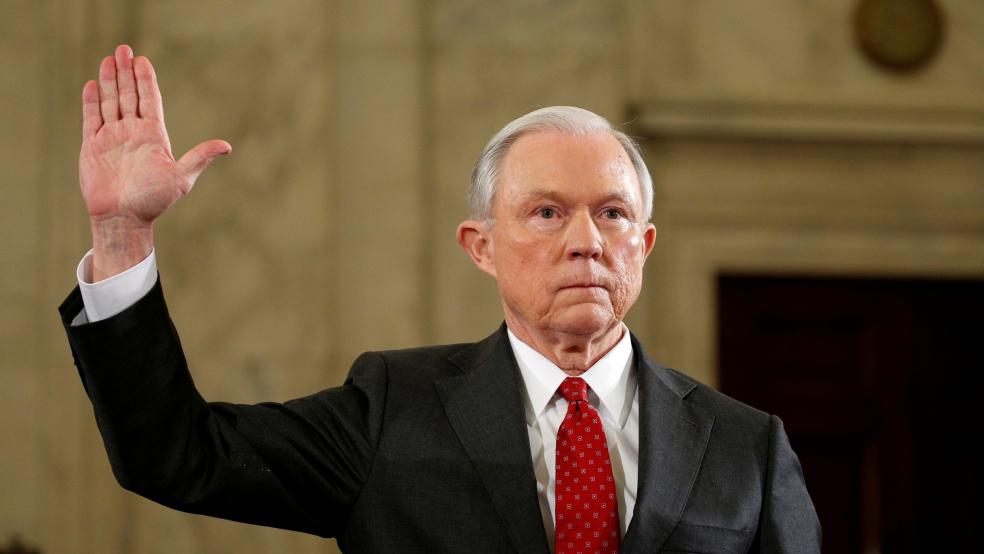Attorney General Jeff Sessions and senior officials of the Trump administration aren’t the only ones struggling to come up with a coherent explanation for why Sessions met with Russian Ambassador Sergei Kislyak last September and then failed to acknowledge the meeting when asked about contacts with Russian officials in testimony given to a Senate committee under oath.
The Kremlin, too, is throwing off spin and misdirection at a pretty impressive pace, suggesting that Vladimir Putin’s government is concerned about suggestions of collusion between its intelligence services and Donald Trump’s presidential campaign.
Related: Demands for a Special Counsel to Investigate Trump’s Russia Ties Just Got Louder
“The embassy doesn’t comment on numerous contacts with local partners, which occur on a daily basis in line with diplomatic practice,” the Russian Embassy said in a statement.
However, Russian state-run media was painting a different picture Thursday. The RT network, which played its own small part in the Trump-Russia drama by paying former National Security Adviser Michael Flynn to attend a gala with Putin in Russia two years ago, reported that the Kremlin denies that Kislyak and Sessions ever met at all even as Putin’s top spokesman said that such meetings wouldn’t be strange at all.
“The Kremlin...ruled out any possibility that contacts between Sessions and the Russian embassy could have taken place,” RT reported. On Thursday, Dmitry Peskov, the Kremlin spokesperson, said he is unaware of any such talks between Sessions and Kislyak, adding that establishing working contacts with host nation’s executive and legislative branches is an inherent part of an ambassador’s job.”
The publication quoted Peskov as adding, “The more such meetings are being held by an ambassador, the more efficient he is. And this applies to every ambassador,” and pointing out that US Ambassador to Russia John Tefft “has plenty of contacts with Russian MPs, and it is quite normal.”
Related: Your Guide to the Players in the Trump-Russia Investigation
Further, the Kremlin pushed back against the suggestion that Kislyak might have served as a conduit of information between the Trump campaign and Russian intelligence services, making the hard-to-credit claim that Russia’s ambassador to the United States has no “links” to his country’s intelligence service.
According to the state-run TASS news service, Peskov said that no US intelligence services had accused Kislyak of being a spy. “[The] Kremlin proceeds from the understanding that no US officials have made any claims to the effect the Russian ambassador in Washington, Sergey Kislyak, may have intelligence links and that all media rumors to this effect are baseless and unconfirmed.”
“The only piece of advice that I can give is that in a situation like this, avoid reacting to all such anonymous, baseless fake news stories and rely only on official statements by genuine officials,” TASS quoted Peskov as saying.
The Kremlin spokesperson also urged everyone to calm down, saying the discussion has become too emotional. "We see a highly emotional atmosphere. But before making any evaluations, we should wait for everyone to calm down and the situation to stabilize.”





